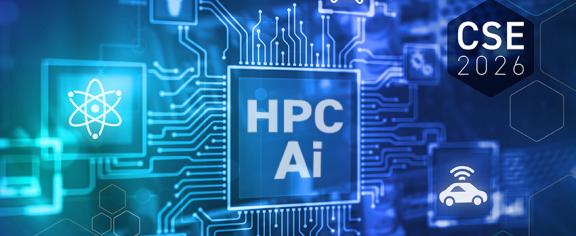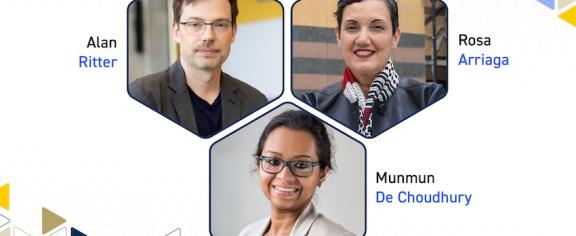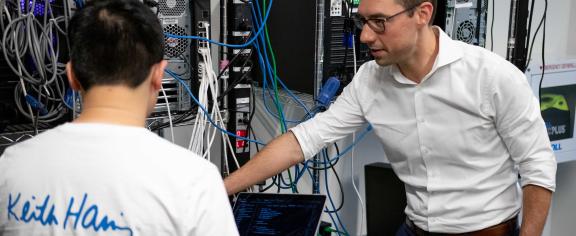2026-01-27
A newly discovered vulnerability could allow cybercriminals to silently hijack the artificial intelligence (AI) systems in self-driving cars, raising concerns about the security of autonomous systems increasingly used on public roads.
2026-01-28
Georgia Tech alum Christopher Craig’s nearly three-decade journey as a student, employee, and instructor shows how combining cybersecurity, policy, and business education is essential for leaders navigating evolving risks—from incident response to AI and
2026-01-29
Georgia Tech researchers say HPC and artificial intelligence (AI) advances this year are poised to improve how people power their homes, design safer buildings, and travel through cities.
2026-01-15
Georgia Tech researchers are using an NSF grant to create new large-language models that help autistic job seekers understand their strengths and how to leverage them during the application process.
2026-01-15
The 2025 NSA Codebreaker Challenge, which was once again dominated by Georgia Tech students, faculty, and alumni.
2025-11-03
The College of Computing named Professor Rich Vuduc as director of the Center for Scientific Software Engineering (CSSE). The Georgia Tech hub is dedicated to building reliable, high-performance software for scientists.
2025-11-24
Three Georgia Tech faculty members received Google Academic Research Awards to study how to make AI safer.
2025-12-10
Yunan Luo is the recipient of an NSF Faculty Early Career Development (CAREER) award to use artificial intelligence to solve the protein annotation inequality problem.
2025-12-02
Oluwatooni “Tooni” Alade, a graduating computer science (CS) student, has spent her college years exploring technology through a variety of lenses: teaching foundational courses, interning at leading tech companies, and pursuing her entrepreneurial ambiti
2025-12-03
With the help of a contract award for up to $12 million from ARPA-H, a team of researchers led by the School of Cybersecurity and Privacy at will begin developing an advanced cybersecurity platform to protect hospitals.








